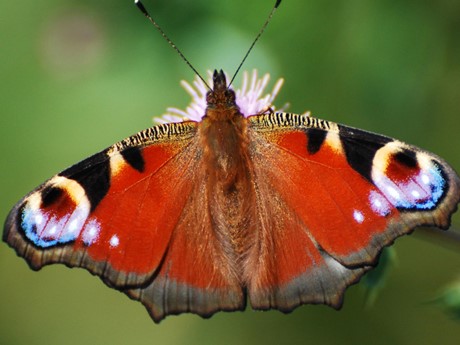Seasonal reports
Our seasonal reports are based on your records.
Can you remember what the weather was like this time last year and how plants and animal were responding? Did snowdrops flower earlier than usual last spring and did the trees hold onto their leaves for longer than usual in the autumn?
Our seasonal reports help to answer these questions.
Latest results

Following a warm and wet spring in 2024, spring 2025 was, overall, warm but dry. It was an early spring for wildlife, with the UK average date for all seasonal events recorded in spring 2025 coming in early compared to the baseline year, with the exception of the first recorded red-tailed bumblebee
Read our report below to find out more.
Previous results
-
2024
-
Autumn 2024
Autumn 2024 was warm, particularly December. Fruiting and leaf tinting were variable but ‘first leaf fall’ was consistently early.
-
Spring 2024
2024 was a warm and wet spring, we had the warmest February on record since 1779 and the 6th wettest April on record since 1836. The consistently warm temperatures from January-May led to many species’ events being observed early.
-
-
2023
-
Autumn 2023
Autumn 2023 was generally warm and wet, with record-breaking temperatures in September and bumper crops of hawthorn haws and holly berries.
-
Spring 2023
2023 was a warm spring, with temperatures above average each month. Although not record breaking, the consistently high temperatures from January to June resulted in most spring events being early.
-
-
2022
-
Autumn 2022
The Nature's Calendar autumn 2022 recording season will be remembered for the record-breaking temperatures during the heatwave in July and bountiful yields of conkers and beech nuts later in the year.
-
Spring 2022
2022 will be remembered as an exceptional year for many reasons. Thinking back to spring, we had some record-breaking data from you with some events occurring earlier than ever before.
-
-
2020
-
Spring 2020
Your records show that 2020 was an early year in terms of spring’s seasonal changes. Similarly to during 2019, wildlife reacted to the warm weather in the first half of the year, and the vast majority of the Nature’s Calendar spring events were early compared to 2001*. Some occurred earlier than we’ve ever recorded before in this annual Nature’s Calendar analysis of spring phenology.
-
